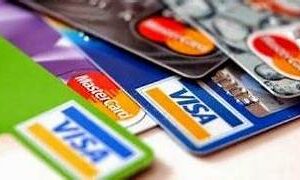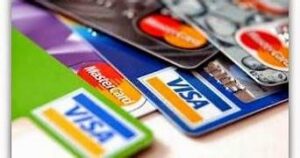It is acceptable to credit the credit card account right after every purchase. Though it is not a necessity for efficient credit card management. Even if one clears the full credit card bill on time, before the due date, it is enough. Maintaining a low credit utilization ratio is also a very impactful factor for the credit score.
No, there will be no negative effects. Crediting the credit card account immediately after every purchase is an acceptable practice. It can showcase financial responsibility and reduces your outstanding balance sooner. It will contribute to a healthier credit utilization ratio. But again, the act of immediate crediting looks like a cumbersome activity. It is actually not necessary to do it. Paying the full credit card bill on time is sufficient.
Paying your credit card bill in full each month and maintaining a net-zero balance can have a positive impact on your credit score, but the extent of the impact may be limited compared to other credit-related factors. Here’s how it works:
- Positive Payment History: One of the most significant factors affecting your credit score is your payment history. Paying your credit card bill on time and in full each month demonstrates responsible credit usage and can contribute to a positive payment history, which can boost your credit score over time.
- Credit Utilization Ratio: Your credit utilization ratio is the percentage of your credit limit that you’re currently using. Keeping a net-zero balance means you’re not using any of your available credit, which can result in a low credit utilization ratio. A lower credit utilization ratio is generally favorable for your credit score. Experts often recommend keeping your credit utilization below 30% to maintain a good score.
- Length of Credit History: Another factor in your credit score is the length of your credit history. If you consistently use your credit card and pay it off each month, you’re contributing positively to your credit history by demonstrating responsible credit management.
- Mix of Credit Types: A diverse mix of credit types, such as credit cards, loans, and mortgages, can also positively impact your credit score. Using and managing a credit card responsibly adds to this mix.
However, it’s important to note that maintaining a net-zero balance on your credit card does not necessarily result in the highest possible credit score. Credit scoring models also consider other factors, such as the age of your credit accounts, the number of recent credit inquiries, and the presence of any negative items on your credit report (e.g., late payments, collections, or defaults).
To build and maintain a strong credit score, consider the following tips:
- Pay All Bills on Time: Not just your credit card bill but all bills, including loans, utilities, and rent.
- Keep Credit Utilization Low: Aim to keep your credit utilization below 30% of your available credit limit.
- Maintain a Mix of Credit Types: If it makes financial sense, consider having a mix of credit types (e.g., credit cards and installment loans).
- Monitor Your Credit Report: Regularly check your credit report for accuracy and address any errors promptly.
- Limit New Credit Inquiries: Be cautious about applying for new credit too frequently, as multiple inquiries in a short period can negatively impact your score.
In summary, consistently paying your credit card bill in full each month and maintaining a net-zero balance can contribute positively to your credit score by building a positive payment history and keeping your credit utilization low. However, it’s just one aspect of your overall credit profile, and other factors also play a role in determining your credit score.
Having a net zero credit card bill at the end of each month is also a good practice. However, its direct impact on your credit score might not be as significant as other factors. While it demonstrates discipline, one’s credit score is influenced by various factors. The other factors are payment history, credit utilization, length of credit history, recent credit inquiries, etc.
To effectively build and improve your credit score, one can focus on the following factors:
- Timely Payments: Consistently paying the bills on time is the most influential factor in shaping your credit score.
- Credit Utilization: One must aim to keep the credit utilization ratio low, ideally below 30% of the total credit limit.
- Length of Credit History: The longer is one’s credit history, the better. Hence, one must avoid closing old credit card accounts. Transactions on old cards can contribute more positively to building a healthier credit score.
- Types of Credit: A diverse mix of credit types, such as credit cards, personal loan, and home loan, can enhance one’s credit profile further.
- New Credit Inquiries: When we apply for a loan or a new credit card, it triggers a new credit inquiry. Limit the number of new credit inquiries. Excessive inquiries within a short period can negatively impact one’s score.
It is an important factor of credit card management. Moreover, clearing the full card bill before the due date is even more important. Paying on time is like acing a financial test. It helps you avoid late fees, interest charges and maintains a positive credit history.
Absolutely, even one late payment can leave a mark on one’s credit score. It’s like a small stain on the financial record that will take time to fade away. Hence it is best to avoid late payment even once. Consistency in paying on time is vital for a strong credit history and a healthier credit score in the long run.
Using a credit card for ATM cash withdrawal isn’t the best move. It is also important to note that cash advances often come with high fees and immediate interest. ATM cash withdrawals using a credit card can also impact the credit score.
Yes. Paying credit card bills early can lower the average credit utilization over a billing cycle. This show as responsible behavior. Plus this way, one is more likely to stay on track and never miss a due date. So, repeatedly paying early not only reduces the balance sooner but also gives your credit score a little boost over time.
If you can’t pay the full credit card bill by the due date, it’s okay, but there’s a catch. While your credit score won’t take an immediate hit, not paying in full might lead to higher credit utilization. This can potentially impact the score over time. Though, paying only the minimum amount is better than not paying anything.
Yes. Paying on time can enhance one’s home loan or car loan eligibility. Lenders consider our payment history when evaluating our creditworthiness. A strong record of on-time payments enhances our credibility. It can lead to better interest rates, or at least it opens the door for interest rate negotiations.



